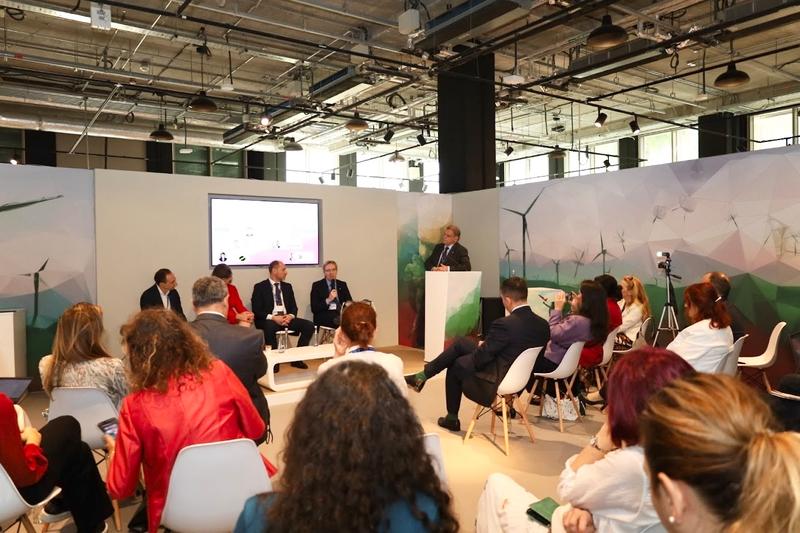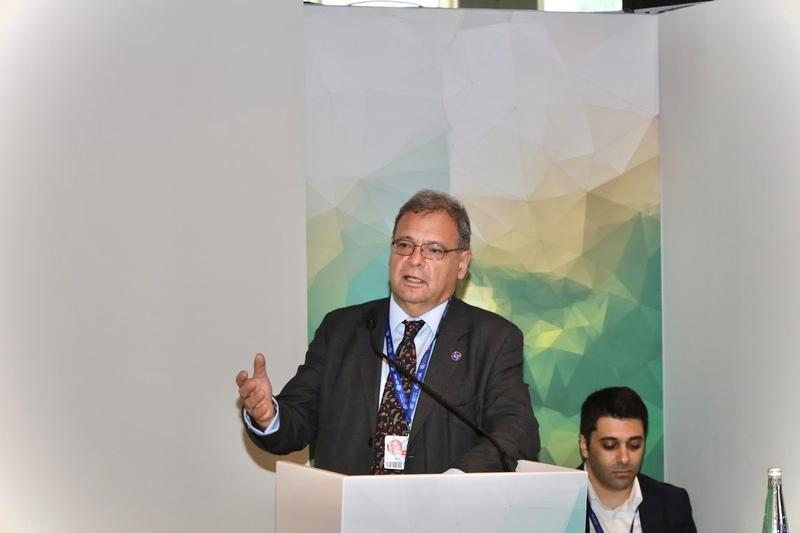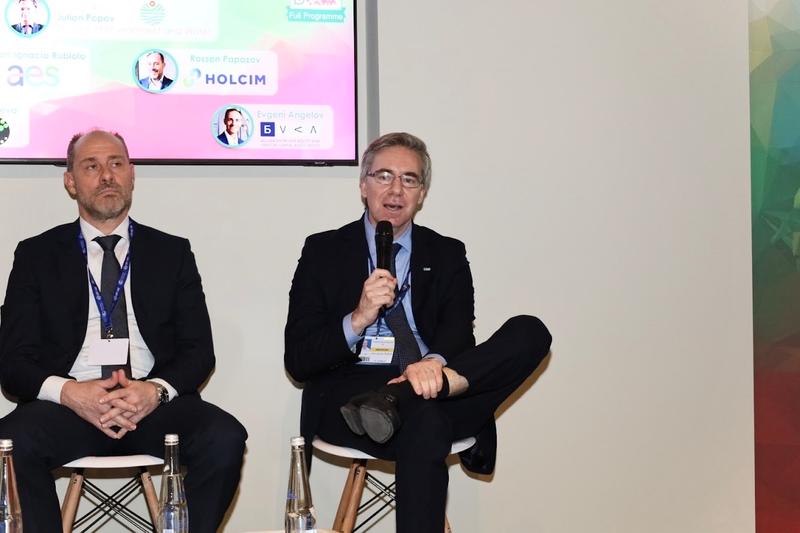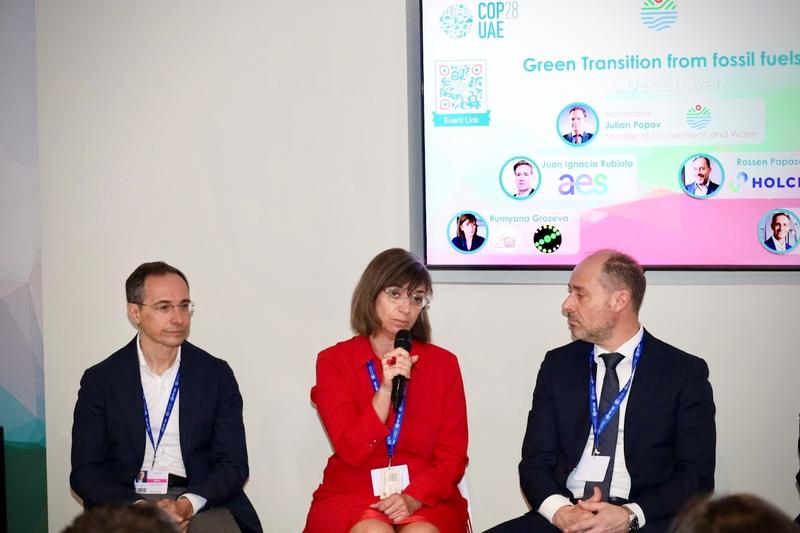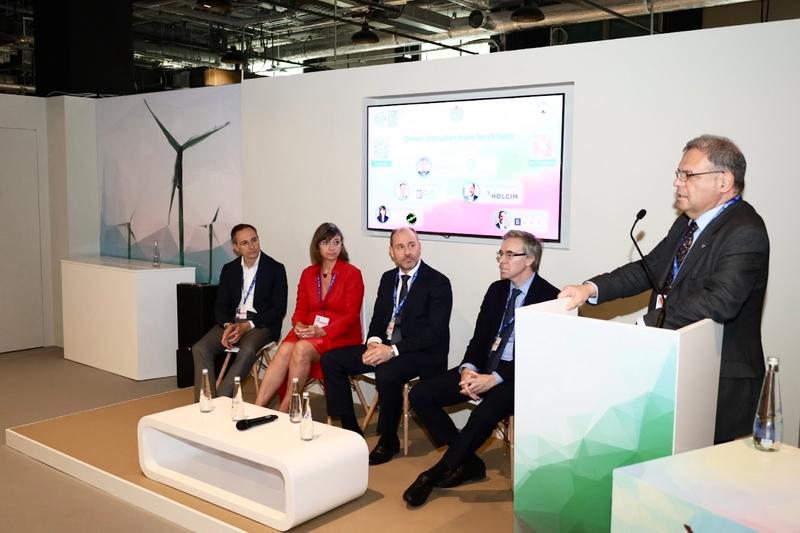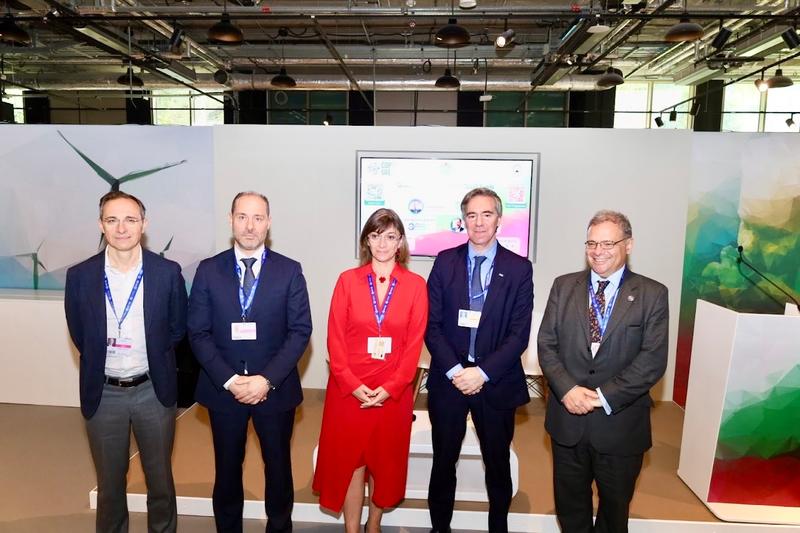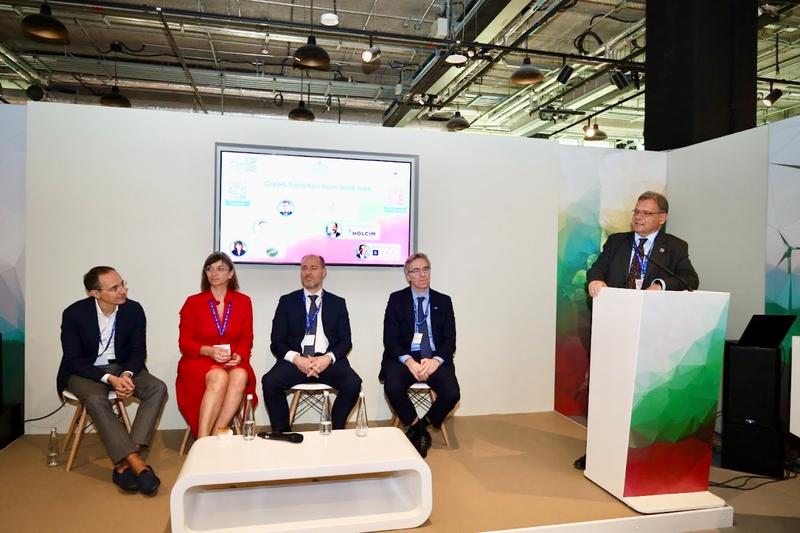STRATEGIES AND PROJECTS FOR GREEN SOLUTIONS IN COAL REGIONS WERE PRESENTED IN THE BULGARIAN PAVILION AT COP28
The Minister of Environment and Water Julian Popov hosted leading energy and industrial producers from Bulgaria and the European Centre for Digital Innovation for a conversation on the transition from fossil fuels to green solutions in coal regions, held at the Bulgarian pavilion at the COP28 climate conference in Dubai.
Leading names in the Bulgarian industry presented their strategies and innovative decarbonisation projects that contain opportunities to leverage the advantages of coal regions to stimulate Europe's zero net carbon strategy.
According to Minister Julian Popov, transforming lignite mining regions into hubs for solar and wind power generation is only part of the potential these regions hold. Their future could be one of zero-carbon industrial hubs, thus building "superlabs" for the transition of the European industry.
"We operate in 14 markets and are in the process of transitioning to decarbonization in all of them," announced Juan Ignacio Rubiolo, Executive Vice President and President for Global Infrastructure at AES Corporation. He elaborated on retrofitting existing thermal power facilities to run on other fuels, such as natural gas, waste biomass pellets, smelting salts, and in the longer term - small modular reactors, hydrogen and ammonia, as technologies with the potential to make this transition. "Bulgaria is one of the corporation's two 'laboratories', along with Chile, where we are exploring various new technologies because of the challenging conditions of the assets," Rubiolo noted.
"The ‘Maritsa East’ region has characteristics that can make it a champion in the green transition," confirmed Minister Julian Popov. It is a huge area of consolidated land that cannot be used for farming or other activities and can produce more sustainable electricity than any coal mining area," he added. Popov said the area represented a real "gold mine", also because of the highly skilled employees with technical professions who were "ideal for the energy transition".
Rumyana Grozeva, Executive Director of the Regional Economic Development Agency of Stara Zagora and project manager of the European Centre for Digital Innovation ZAGORE, presented projects under developement for the future of the region, including a hydrogen valley and a "digital hub" by attracting technology companies. In the case of Maritsa, this really is a "goldmine" for the region, she confirmed that the needed investors, skilled employees, and the vision for transformation are in place.
However, communication with local residents and authorities is of utmost importance so that they are aware of the opportunities, Grozeva stressed. When it comes to retraining, this is a huge concern for people and they need to be reassured that investment is being made in their future, she added.
"When we talk about a just transition, we politicians have to change our own way of thinking and talking," noted Minister Popov.
